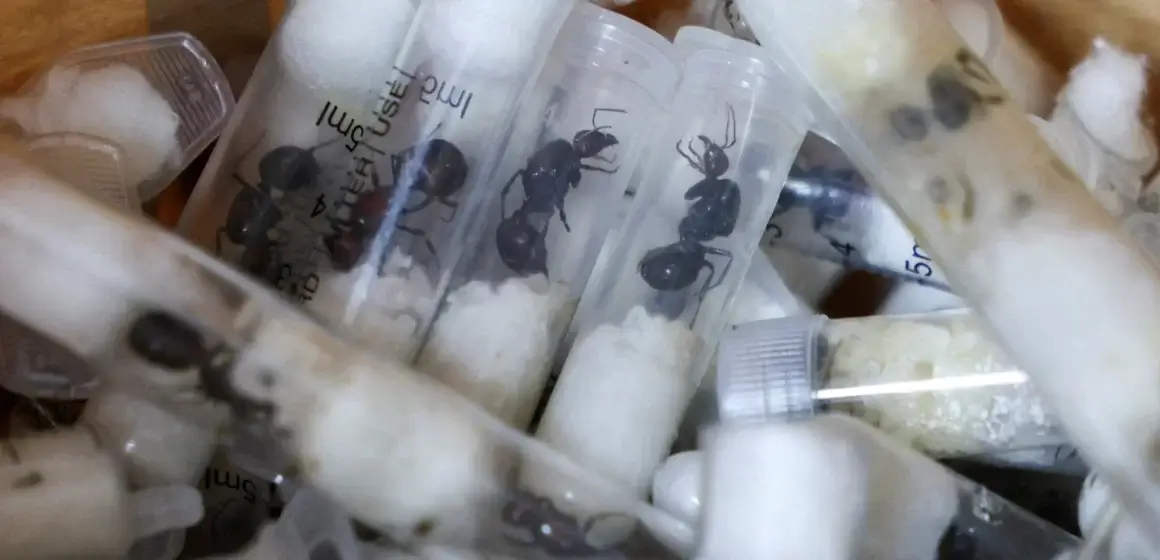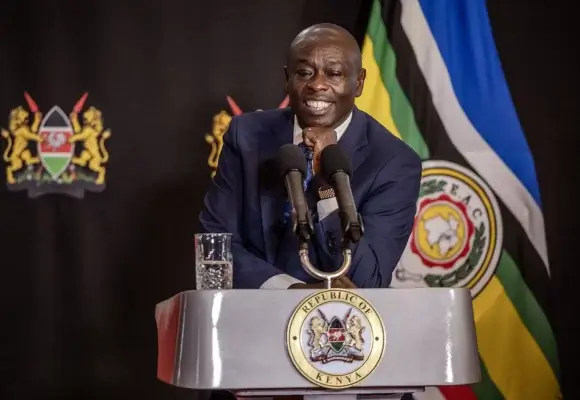|
LISTEN TO THIS THE AFRICANA VOICE ARTICLE NOW
Getting your Trinity Audio player ready...
|
Two Belgians, a Vietnamese national, and a Kenyan faced court proceedings in Nairobi Monday, April 14, after being caught trying to smuggle thousands of live queen ants out of Kenya.
Authorities said the suspects were intercepted at Jomo Kenyatta International Airport (JKIA) while in possession of over 5,000 live ants, specifically the Messor cephalotes species, commonly known as the Giant African Harvester Ant. The ants had been meticulously concealed in 2,244 miniature containers, mainly modified test tubes and syringes, each designed to sustain the insects for weeks and slip through airport security undetected.
According to the Kenya Wildlife Service (KWS), which led the investigation, the packaging indicated a high degree of planning. “The test tubes were engineered to keep the ants alive for up to two months,” the agency said in a statement, describing the operation as “premeditated and well-executed.”
While ants might be considered mundane or even bothersome in many settings, a subculture of exotic pet enthusiasts around the world views them very differently. In parts of Europe and Asia, keeping ant colonies in transparent enclosures known as formicariums has become a popular hobby. The Messor cephalotes, native to East Africa, is especially sought after due to its striking appearance and rarity. British specialist pet shop AntsRUs described them as “truly amazing to visually observe,” with queens measuring between 20 and 24 millimetres and flaunting a distinctive red and brownish-black coloration.
Although such species may be admired abroad, Kenyan law protects them under stringent biodiversity and wildlife regulations. Exporting any native species, whether insect, plant, or animal, requires permits from the KWS, and in some cases, certification from health authorities and benefit-sharing arrangements under the Nagoya Protocol, an international agreement Kenya ratified in 2014 to prevent unauthorized exploitation of genetic resources.
“This unprecedented case signals a shift in trafficking trends—from iconic large mammals to lesser-known yet ecologically critical species,” the KWS noted. “It also highlights a growing problem of biopiracy, where foreign actors attempt to exploit our biological wealth without consent or fair compensation.”
Court records revealed the estimated market value of the seized ants to be around one million Kenyan shillings (approximately $7,800). The traffickers pleaded guilty on Monday to charges of illegal possession and trafficking of wildlife and returned to court the following day.
David Lornoy, one of the Belgian defendants, attempted to explain the group’s actions to the court: “We did not come here to break any laws. By accident and stupidity we did.” His plea for leniency, however, did little to dampen the seriousness of the case in the eyes of Kenyan officials.
The four suspects remain in custody as the court awaits pre-sentencing reports from the KWS, the National Museums of Kenya, and the probation department. The sentencing is scheduled for April 23.
Experts familiar with the exotic insect trade say demand for ants like Messor cephalotes is rising, particularly due to their rarity and the visual appeal of their colony-building behaviour.











LEAVE A COMMENT
You must be logged in to post a comment.